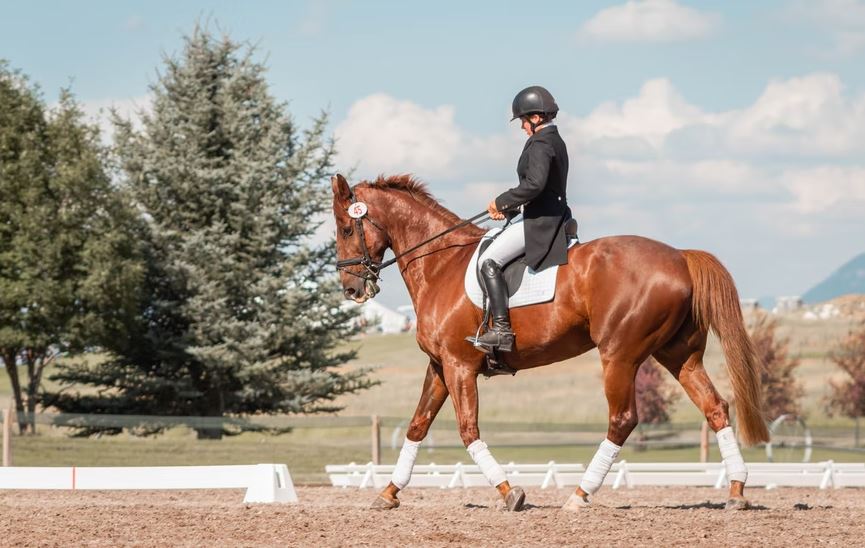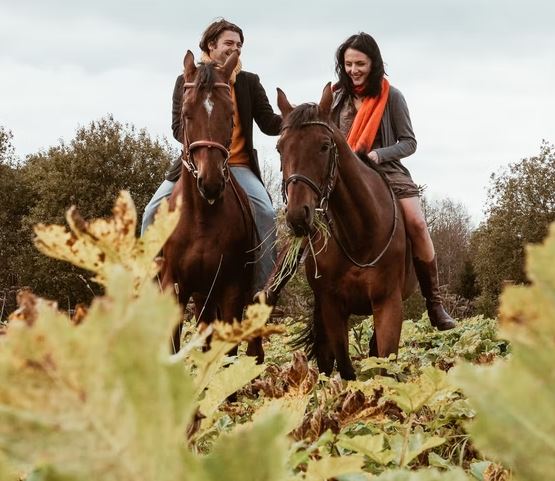Trust is essential in any relationship, but it is especially important when it comes to horses. Because a horse who does not trust his owner may inadvertently or intentionally hurt that person, trust is essential. Trust is earned through a lot of hard work and time spent together, just like any other relationship. Learning how to gain your horse’s trust can help you ride with confidence and establish a long-term relationship.
Your relationship with your horse is extremely important to you. But, just like any other relationship, it must be joyful, based on trust and mutual connection—not a battle, dread, worry, overwhelm, fear, or lack of trust.
1. Be Predictable and Consistent
Horses do not automatically have the skills and abilities to understand humans when they are born. In the human world, it is much more difficult to live, survive, and thrive. Being consistent and predictable is the most effective way to build trust.
Maintain a consistent energy level, emotions, and demeanor around your horse. Keep your communication consistent by exchanging messages in the same way – a way that either you or your horse understand.
Predictability provides reassurance. It boosts self-assurance and allows for more in-depth learning opportunities.
2. Defining Boundaries
We must prepare our horses for success if we expect them to trust us. Boundaries are one of the areas where most horse owners go wrong.
Boundaries indicate that we have a defined private space that we expect our horse to respect, and that space should only be invaded with our permission.
We have not set up our boundaries properly when we allow our horses to push into us when they are anxious, but then expect them not to walk over us when we lead them.
It may appear counter-intuitive. However, the respect and consistency we foster through our boundary setting lead to a much higher level of trust.
3. Listen carefully
Our natural response is to talk. This is not the case with horses. They converse mainly through body language and expressions of the eyes, ears, and muzzle. If you’re not paying attention, you might miss this subtle language.
You will notice a change in her demeanor if you slow down your talking and simply allow the horse to “speak.” Your horse will quickly notice that you are listening to them, understanding what they are saying, and respecting established boundaries.
Simply listen to the horses to spend quality time with them. Allowing choices, listening to them, grooming, or going for a long walk together are all options. Improve your understanding of your horse’s language, including how she thinks, reacts, and learns, as well as what drives her to act.
To be clear, this is not training, but rather time spent. It’s critical to spend time with our horses without any agendas, to-dos, or tasks dictating how, when, and where the horse should act, be, and do.
4. Gentle and Encourage a Learning Brain Inspire a learning brain by being gentle.
When things get tough, how you manage yourself around your horse can have an impact on how trust develops. How can your horse trust you if you scream at them for doing something they are uncertain of, testing you with, or unable to do? If you get excited, how can your horse not get excited?
Even when things are going crazy, breathing and keeping your emotions in check can help establish respect and trust.
5. Emotional Support
We must help our horses manage their emotions in the same way that we must manage our own. This can be challenging in some of the hotter breeds, but it is still critical. When we show our horses a method of processing and learning that the frightening objects are not as frightening as they appear, they breathe deeply, look at us, and begin to trust us as we promise. Indeed, as a horse owner, seeing progress in terms of your horse’s emotions will serve as good therapy for you.
6. Reward Your Horse for His Achievement
Reward your horse for trusting you to guide him through the difficult terrain. Horses, like humans, enjoy being rewarded for their efforts. Small pats, rubs, or verbal praise are examples of simple rewards. When working to build trust in a troubled horse, lavish him with this kind of reward. If the condition allows, they can also be horse treats that you can make at home. Food should not be given to horses who are working hard, but there are many ways to use snacks as an incentive.
7. Build a Foundation of Trust
Horses will learn to trust those who do not ask for too much too soon. Start small when teaching your horse anything that will take them out of their comfort zone.
Trailering is a commonly learned skill that requires trust. There are numerous methods for learning and improving this skill, but it all boils down to trust.
Every method for introducing a horse to a trailer starts with the same steps. In a small toe-in-the-water step, introduce your horse to the trailer. Too much, too soon can be overwhelming and undermine the trust you’ve worked so hard to build.
Don’t dismiss small introductions to new skills, and make good use of your first impressions of them. Over time, your horse will recognize the pattern of starting small and will continue to trust you to teach them new things.
A trusting horse will be curious and eager to learn new things. Fear of refusal is likely to follow a breach of trust.
8. If your horse spooks, quickly regain your trust.
Things occur, and horses become frightened. Was he scared by something he saw, smelled, or heard? The quicker you correct this critical state when your horse is spooked by something, the better. A scared horse is similar to a scared child. Small scares are quickly forgotten, but long-term exposure to whatever is provoking the fright can result in long-term emotional trauma, shattering your trust. When your horse becomes frightened, do everything you can to calm him down as quickly as possible. Even if it means rescuing him from a dangerous situation.
9. Changing The Routine
While consistency is essential in everything we do, that does not mean we should work all the time. An opportunity for explorations, free play, or even a change of scenery not only breaks up the monotony of work but also helps expose the horse to new scenarios, allowing you to test and extend their trust in you.
10. Be Patient
When it comes to building trust with a horse, every rider can and should be patient. The most troubled horses, with the greatest fears, require the greatest amounts of patience to gain trust. The most troubled horses, in general, have learned to distrust certain skills as a result of a fearful reaction to a previous situation. When trying to break a bad or dangerous habit, they tend to react negatively over and over again. Allow time to pass. Find patience deep within yourself. Patience will be rewarded if you try to bridge that gap calmly and cautiously over and over again.


